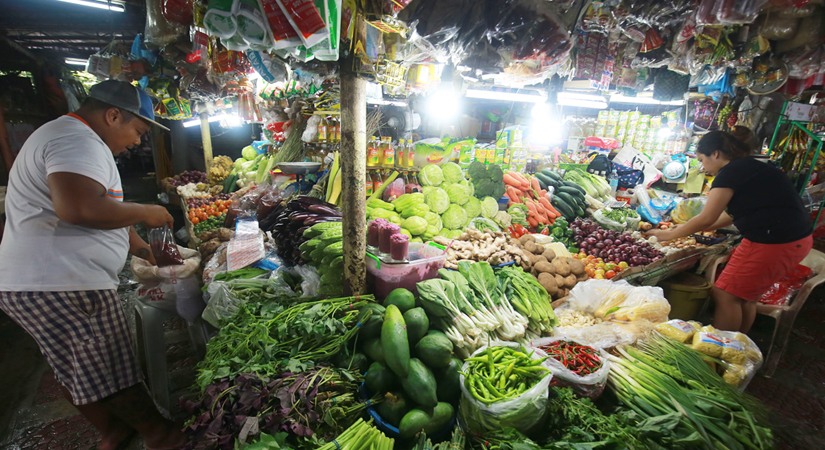
Inflation likely settled between 2.4% and 3.2% in November on higher oil prices and crop damage caused by typhoons, said Philippine central bank Governor Benjamin E. Diokno on Friday.
“Higher domestic oil prices, as well as the impact of weather disturbances on the prices of rice and select agricultural commodities contributed to upward price pressures during the month,” he told reporters in a Viber group message.
Local oil prices rose by 50 centavos a liter for diesel and by 30 centavos for kerosene this month, according to the Energy department’s website, citing data as of Nov. 24.
Oil prices have fallen by P4.62 a litter for gasoline, P8.86 for diesel and P12.29 for kerosene this year, it said.
Crop damage from Typhoon Vamco, locally named Ulysses, has reached P4.18 billion, affecting 106,619 farmers and 106,489 hectares of land, according to the Agriculture department.
The storm followed four other typhoons and submerged many parts of Luzon island including the capital region this month.
Mr. Diokno said higher oil prices could be tempered by the stronger peso and lower electricity rates in areas served by Manila Electric Co. (Meralco).
Meralco has said the rate for a typical household went down by P0.0395 a kilowatt-hour (kWh) to P8.5105 this month, resulting in a net rate reduction of P1.35 a kWh since the start of the year.
The peso appreciated by 5.5 centavos to P48.06 against the dollar at the close of trading on Friday.
“Looking ahead, the Bangko Sentral ng Pilipinas (BSP) will remain watchful of economic and financial developments to ensure that its primary mandate of price stability conducive to balanced and sustainable economic growth is achieved,” Mr. Diokno said.
The central bank cut its policy rates again by 25 basis points last week, bringing its overnight reverse repurchase, lending and deposit facility rates to record lows of 2%, 2.5%, and 1.5% respectively.
Inflation quickened to 2.5% in October from 2.3% in September, the fastest pace in three months.
The uptick was mainly due to faster increases in prices of food and nonalcoholic beverages, as well as in education, restaurant and miscellaneous goods and services.
Inflation has averaged at 2.5% to date, within the BSP’s 2-4% target. The central bank expects inflation to average at 2.3% this year.
The Philippine Statistics Authority will report November inflation data on Dec. 4. — Beatrice M. Laforga
